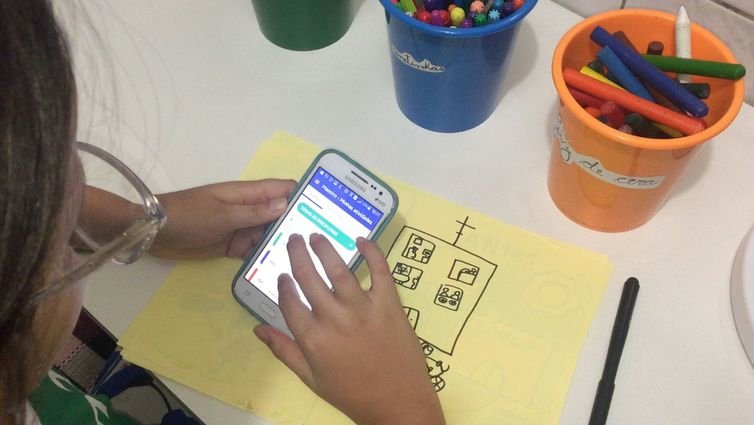A study conducted by researchers at the University of Pennsylvania, USA, showed that 15.4% of children seen in 29 clinics linked to Children’s Hospital of Philadelphia, during the COVID-19 pandemic, were obese. . In 2019, the proportion was 13.7%.
The increase occurred in all age groups, ranging from 1% in adolescents aged 13-17 years to 2.6% in children aged 5-9 years. The body mass index (BMI) of 169,179 children and adolescents treated in the period from June to December 2019 was measured and compared with 145,081 patients consulted in the same period in 2020.
Another study, coordinated by the Pennington Center for Biomedical Research, also in the US, showed that for every extra hour of sleep in 3- to 5-year-olds, there was a 0.48 decrease in BMI. In addition to excessive consumption of high-calorie foods and a sedentary lifestyle, sleep duration is a risk factor for childhood obesity. Based on this data, the Instituto do Sono warns Brazilians, because the booking and suspension of classes due to the epidemic in the country has exacerbated childhood obesity.
Read more: The study says that the epidemic had a direct impact on infants and children
According to Dr. Gustavo Moreira, a researcher at Instituto do Sono, the increase in obesity among children who sleep less is caused by a combination of factors. “Theoretically, if you are awake, you expend more energy, but in reality, the more time people spend awake, they are in front of a big or small screen, low energy activities, on social media, video games and flowArabic study. “People exercise less and have more calories between foods,” Moreira said.
Another factor is that if the individual sleeps less, in the case of children and adolescents, the body understands that it is little and the person is in a state Stress. We have two types of hormones that control our appetite: lepitin, which is the satiety hormone, and grelin, which is the hunger hormone. The doctor explained that when I sleep less, I excrete less leptin and more ghrelin, i.e. my appetite for food increases, and the tendency to eat more food without any opportunity to spend.
Moreira noted that the epidemic contributed to the growth of obesity because it changed the routine of children who, for a healthy life, need a balanced diet, exercise and energy expenditure. However, to avoid contamination with the coronavirus, children have had to exchange outdoor activities with mobile games and distance learning school lessons.
When they spend a lot of time in front of screens, children eat several times a day, especially biscuits, snacks and sweets. The doctor said that the high exposure to screens push the youngsters to sleep late and wake up early.
Expert recommendations for the prevention of childhood obesity include maintaining a regular diet, with schedules for all family meals; preference for natural foods over processed foods, such as canned and canned foods; And monitor the food pyramid consisting of eight groups of basic healthy foods (carbohydrates, vegetables, fruits, milk and dairy products, meat and eggs, legumes and oilseeds, oils and fats, sugars and sweets).
It is also necessary for parents to be role models, because adults who follow a balanced diet influence their children to eat healthy; Establishing a routine for the child, setting the times for sleeping, waking up, playing and studying; Reduce screen time, increase outdoor activities, and take children to play outdoors.
Read also: With this pandemic, 44% of children and teens have felt sad
adult sleep
The health crisis has also affected the quality of adults’ sleep. According to a survey conducted by the Do Sono Institute, among the 1,600 respondents to the survey, 75% attributed the deterioration of sleep to increased anxiety; 64% stay longer in front of computer screens, television and mobile phones; And 54% are staying at home longer.
When addressing sleep quality, the study revealed that 67% of the participants had more difficulty falling asleep. 61.6% went to sleep later; And 59% get up a lot during the night.
Read more: Follow the full coverage on the coronavirus
Would you like to receive the main news from Santa Cruz do Sul and the region directly on your cell phone? So be a part of channel no telegram! The service is free and very easy to use. If you already have the app, just click on this link: https://t.me/portal_gaz. If you don’t use Telegram yet, learn more about the app Here and see how to download.

“Wannabe internet buff. Future teen idol. Hardcore zombie guru. Gamer. Avid creator. Entrepreneur. Bacon ninja.”

